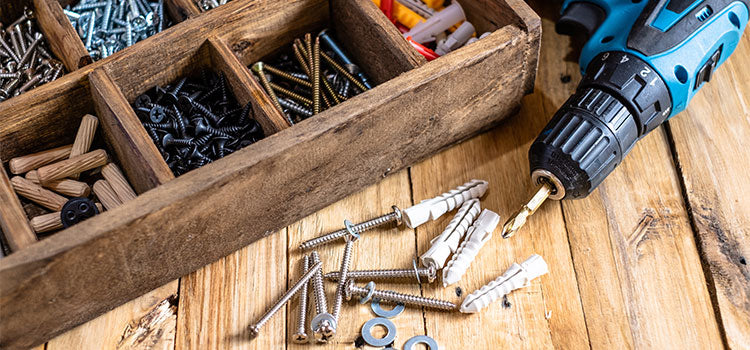
Corrosion Resistant Screws and Understanding Screw Materials

What Screws are the Right Fit for Your Outdoor Project?
Deciding which screws to use for a project can be overwhelming with the large variety of options available. Fasteners Plus is here to help with tips and suggestions on the most recommended screws in the construction industry for outdoor use. Watch our video below that answers some of the most common questions about screw corrosion.
Why Does Corrosion Occur?
Most screws will rust when exposed to moisture unless they are dipped in a rust-resistant coating. If the coating chips or flakes away, rust may form under the coating which can then undermine the strength of the screw. Corrosion occurs when the metal’s properties begin to degrade.
All metal, including the metal used in fasteners, holds voltage (volts) and all metals have different volts that react differently. When two metals interact with water, a process called galvanic corrosion is created.

How to Prevent Screws from Rusting
There are several ways to reduce possible galvanic corrosion of screws and connectors. Choosing screws and connectors with finishes that have similar electric potential reduces the flow of electricity, which then reduces the rate of corrosion.
Best practices to prevent corrosion:
- Use screws, anchors, and connectors with similar electrochemical properties.
- Use insulating materials to separate dissimilar metals.
- Ensure the screw or anchor is the cathode when dissimilar connector metals are present. Cathode means it is a negatively charged electrode.
- Prevent exposure and pooling of electrolytes.
An example of choosing the right screw coating to match the connector coating is using a hot-dip galvanized screw with a connector that has a ZMAX or HDG galvanized finish. A Type 316 stainless steel screw can be used with a connector with a Type 316 stainless steel finish. Click here to read more from Simpson Strong-Tie on which connector coatings match well with fastener coatings.
Along with choosing screws similar in properties to the material you are fastening to, it is also crucial to intentionally install screws in a way that delivers constant pressure. When a load of a fastener bears constant change, the continuous change can accelerate corrosion.
Additionally, the flow of electricity and the rate of corrosion are greater when flowing from a smaller object to a larger area. For that reason, you would not want to use zinc screws to fasten together stainless materials. The large gap in electric potential would quickly degrade the zinc screws, which would then weaken the structure.

Best Screws for Outdoor Use
Fasteners are comprised of a variety of finishes that affect their ability to resist corrosion and perform well outside. The best screws for outdoor use to fight weather/rain are stainless steel screws, galvanized screws, and decking screws.
When building outdoor projects such as boats, pergolas, or decks, screws are typically used over nails. Screws have additional gripping strength provided by their threads. This extra grip helps better resist the inevitable wood movement caused by moisture and humidity.

Stainless Steel Screws
Stainless steel screws combine iron with chromium, as well as nickel, which increases corrosion resistance. The most widely available stainless steel screws are 304 and 305 grades. Both grades are appropriate for general use, although 305-grade screws have slightly greater corrosion resistance. For maximum corrosion resistance in extreme environments, spending the extra money for 316-grade stainless is worth it.
When it comes to rust-resistant screws, Conquest stainless steel screws are heavy-duty screws that are extremely rust-resistant. Fasteners Plus also carries a variety of Simpson specialty stainless steel screws, stainless steel masonry screws, and Tapcon stainless steel screws.

Galvanized Screws
Galvanized screws are comprised of a thick zinc coating that provides great corrosion resistance. All the hot dip galvanized and mechanically galvanized screws that Fasteners Plus carries, pair with the G90 galvanized and ZMAX Simpson wood connectors.
With treated lumber, it is recommended to use galvanized, stainless, or specially formulated coatings like Simpson’s Double-Barrier coating. Strong-Tie SD connector screws and Conquest fasteners are excellent galvanized screw options.

Decking Screws
Decking screws are typically comprised of carbon steel or stainless steel and are usually coated in a special ceramic coating to prevent rust. Decking screws are resilient enough to be used for decking, fences, sheds, or other outdoor timber constructions that are repeatedly exposed to the weather and rain.
Conquest screws are also designed to quickly and accurately fasten decking boards and other exterior wood-to-wood applications.





